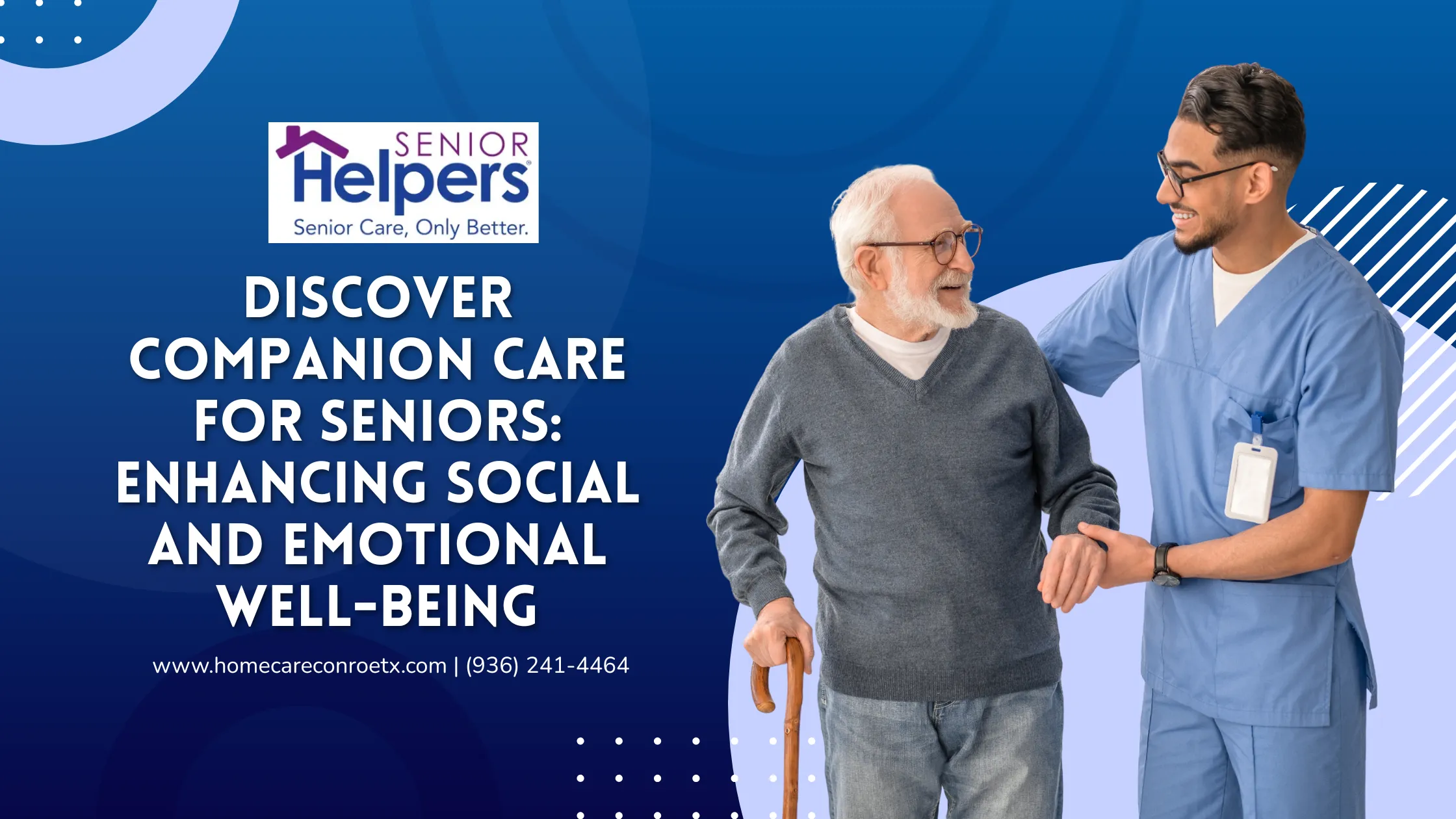Loneliness isn’t just sad—it’s dangerous. It leads to depression, confusion, and a fading sense of purpose. Sadly, many seniors in Conroe and nearby communities face this every day. But there’s a powerful and practical way to restore connection: companion care for seniors.
This guide walks you through how companion care supports emotional health, strengthens daily routines, and brings meaningful social interaction back into a senior’s life.
1. Social and Emotional Support Becomes Critical with Age
It’s not just about conversation — it’s about consistency, dignity, and comfort.
As people age, their social circles shrink. Friends pass away. Adult children move farther. Physical limits make outings harder. As a result, seniors experience more:
- Anxiety and sadness
- Poor sleep and eating habits
- Isolation-related health risks
- Forgetfulness and cognitive decline
When emotional needs go unmet, physical health often declines too. Companion care helps close this gap by adding warmth, routine, and stability.
2. What Companion Care Really Looks Like at Home
A daily presence that brings calm, joy, and structure—without clinical tasks.
Companion care isn’t about lifting or bathing. It’s about presence. A familiar face. A steady hand. Someone to share stories with or enjoy quiet afternoons.
Home companionship services often include:
- Light-hearted games, TV time, or simple crafts
- Friendly walks or seated exercise
- Emotional encouragement after doctor visits
- Helping organize old letters, recipes, or family albums
- Sitting together to enjoy a meal or conversation
If you’re in Conroe or Montgomery County, non-medical senior care like this can make your loved one feel valued again.
3. Mental Health Benefits That Last Beyond the Day
Even 30 minutes of connection can brighten mood and sharpen the mind.
Regular social interaction has direct mental health benefits for aging adults. Especially those with early-stage memory concerns or limited family visits.
Benefits of daily emotional support include:
- Less depression or agitation
- Sharper memory and thinking skills
- Better sleep routines and appetite
- Improved motivation to move or go outside
- Stronger sense of identity and purpose
Need help finding support nearby? Consider daily social support at home that puts your loved one first.
4. Helping Seniors Heal After Loss
Grief doesn’t disappear overnight—but company softens the edges.
Many seniors still carry unspoken grief. The loss of a spouse, a close friend, or even a beloved pet leaves a silence that companions can gently fill.
How caregivers support grieving seniors:
- Encourage shared reflection or storytelling
- Offer calm companionship on meaningful dates
- Watch favorite shows or listen to favorite music
- Create comforting rituals like afternoon tea or walks
- Respect silence without forcing small talk
These moments help build trust and relieve isolation—without pressure or judgment.
5. Rediscovering Old Joys and Daily Purpose
Engagement can be as simple as routine—and just as meaningful.
When seniors feel isolated, they may lose interest in hobbies or habits they once loved. Companion caregivers help reignite those simple pleasures.
Seniors may enjoy:
- Watering plants or sitting on the porch
- Watching old comedies and discussing memories
- Reading aloud or flipping through family photos
- Trying new low-effort recipes
- Celebrating small wins, like organizing a drawer
Looking for a trusted service in Southeast Texas? Senior companionship solutions are available right where you are.
6. A Quiet Relief for Family Caregivers
You don’t need to do everything—and you don’t have to feel guilty.
As a family member, you want to give your all. But no one can be everything, all the time. Companion care steps in where you can’t.
What you gain from consistent help:
- Time to manage errands or rest
- Peace of mind when you’re not home
- A reliable source of emotional support for your loved one
- Less caregiver burnout and decision fatigue
Explore non-medical support services for elderly that fit your family’s rhythm.
Final Word
Seniors don’t need constant activity. They need connection. Conversation. Comfort. Companion care for seniors brings those things—quietly, reliably, and lovingly.
If someone in your life is growing quieter, more withdrawn, or simply needs someone to talk to, companion care may be the easiest first step toward a fuller life at home.
Want to explore care options built around emotional and social wellness? Connect with our companion care team today.
You can also learn more about available services on this Senior Helpers Google Business Profile.



